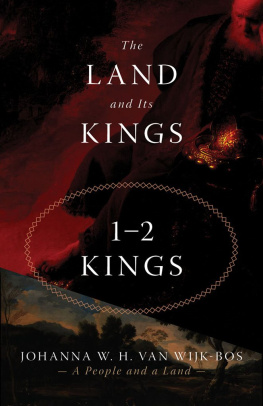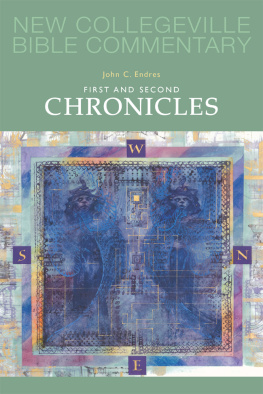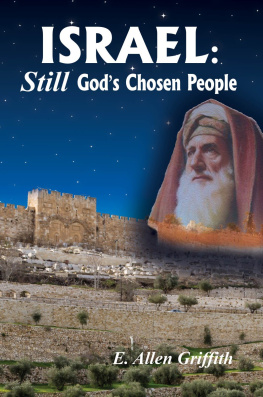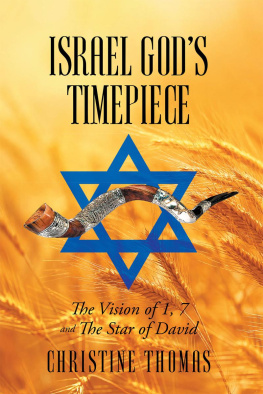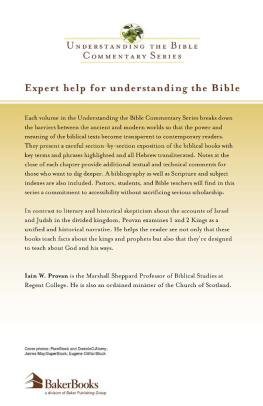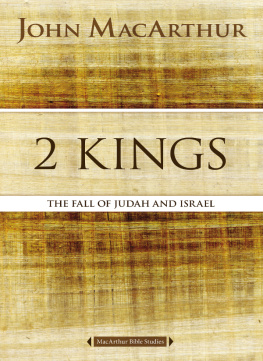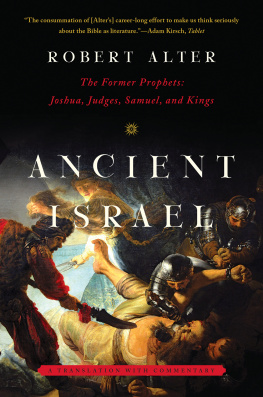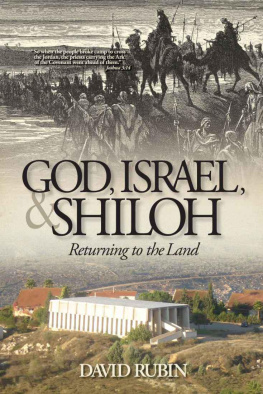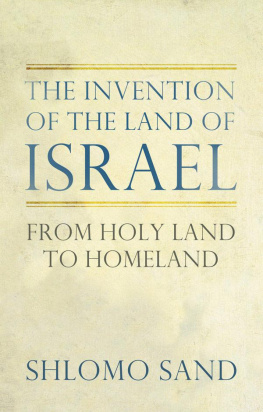A People and a Land
VOLUME 3
The Land and Its Kings
12 KINGS
Johanna W. H. van Wijk-Bos
WILLIAM B. EERDMANS PUBLISHING COMPANY
GRAND RAPIDS, MICHIGAN
Wm. B. Eerdmans Publishing Co.
4035 Park East Court SE, Grand Rapids, Michigan 49546
www.eerdmans.com
2020 Johanna W. H. van Wijk-Bos
All rights reserved
Published 2020
262524232221201234567
ISBN 978-0-8028-7745-1
eISBN 978-1-4674-6027-9
Library of Congress Cataloging-in-Publication Data
A catalog record for this book is available from the Library of Congress.
For my students
Louisville Presbyterian Theological Seminary
19772017
Contents
The Former Prophets of the Hebrew Bible are a part of the great arc of biblical narrative that begins with the creation of the world and ends with the Babylonian exile. The framework of entry and exile encloses the four books of Joshua, Judges, Samuel, and Kings, texts that include some of the most familiar and some of the least known material in the Bible. In Christian circles, where there is a certain amount of acquaintance with the Bible, the outlines of the David and Goliath story will be remembered, as well as the story of Solomon and the two prostitutes. Few, however, will recall the tricky Gibeonites or the prophet killed by a lion on his way home after dining at the house of one of his colleagues. The names of the prophets Elijah and Isaiah we recognize, but Deborah and Huldah are unlikely to have importance in the collective memory even of those who attend church or synagogue.
One purpose of this writing is to offer a close reading of the Hebrew text in translation to reacquaint us with the path taken by the people called Israel as they cross the Jordan into the land of the promise, live therefirst under loosely organized tribal leadership but eventually embracing a form of monarchyand finally lose the land and go into exile. In studying these books, we traverse more than six hundred years of history, much of it periods of great turbulence for the people of the Bible as well as the surrounding nations. The land the Israelites believed to be granted to them as a gift from God is a reality into which they cross, where they learn to live together, become divided from one another, and which they eventually lose. This land is not only the place where they live but it betokens for them the presence of God, a utopian ideal concentrated in the city of God, Jerusalem/Zion, and most of all in the temple. In the end, ironically, it is not land or city or temple, even less kingship, that guarantees for this people their ongoing identity, orientation, and self-definition. Rather, the words spoken, written, and readdeposited in documentsbecame the lodestar for the community out of which Rabbinic Judaism and Christianity were born.
Some of the stories we find here may move us; some may appall; all will speak to the imagination if we let them. The histories were written for education, edification, and also entertainment. This is the way the people went; this is the way God went with them as they saw it and described it. It is a remarkable collection describing an ancient people in an ancient worldfar removed from ours, that at the same time invokes contemporary situations and questions. In considering these accounts, we also look in a mirror. We engage in our own quandaries regarding our communities and the God of our faith. The people who wrote the narratives, the ones who collected and edited them, believed that God was involved in their storyin the way they went, with all its ups and downs. By getting closer to their story, we may find a guiding hand in our own lives as individuals and communities. There is no boilerplate here, no script to copy, but in it and through our reading, we too may encounter the presence of the Holy One and derive a moral compass for our lives.
As always, I have written as a scholar of the Bible with deep commitments to feminism and issues of gender and to analysis of patriarchal structures and ideologies. Womens voices and the roles they play in the various accounts have received special attention. I also write as a child of World War II who absorbed in mind and heart the sights and sounds of atrocious violence and inhumanity that infested communities and individuals when entire groups were defined as outsiders, deprived of the basic claim to have a share in the human race. My awareness as a writer and interpreter of Scripture is attentive to the historical Christian dishonoring and victimization of the Jewish people, and it has been my aim to be respectful toward a part of Scripture that describes a history of which Jews are the direct descendants. The history we find here may not be history as it would be written today in the modern world. It is nevertheless history in the sense of a people writing about its past. The name in
All translations of biblical texts are my own, based on the accepted Hebrew text of the Bible. For biblical quotations, set on the page as inserts, I use short, so-called colo-metric lines, giving the appearance of poetry.
In the books of the Former Prophets, this alien world unfolds itself before us in all its variety, its different sights and sounds, its foreign nature and texture, and especially its multiple voices. The multivoiced character of the text is on full display in these books of the Bible. In the books of Samuel the hesitancy with which charismatic leaders embrace the notion of kingship is palpable and the road to a hereditary monarchy is a rocky one. David, appointed by God and anointed by Samuel, succeeds in establishing his hold on the throne, but at the end of 2 Samuel it remains to be seen if his achievement will result in dynastic kingship. Consequently, Kings opens with a question mark surrounding the issue of Davids heir. Once the issue of succession is settled, his son Solomon ostensibly has the reins of rule firmly in his hand and manages to establish Jerusalem as a center of religious as well as political leadership through the building of the Temple. But the voice that is critical of kingship and holds it accountable for the dissolution of bonds of kinship and the eventual loss of the land, already present in the description of Solomons reign, becomes dominant in the chapters that follow.
The writing and shaping of the book took place in the absence of my primary conversation partner of more than forty years, my beloved husband, A. David Bos, of blessed memory. Our son, Martin, is an example of one who had the courage to traverse his own boundaries, stepping forward into unknown territory to embrace life while daily confronting giants in this new land.
Other important conversation partners were present. They patiently listened to my enthusiastic ramblings and responded with interest and insight. I acknowledge with gratitude my colleague and friend Heather Thiessen, who is always ready to address issues vital to writing on the Bible, and my assistant Christiaan Faul, who checked the manuscript for accuracy of biblical citations and who eased my transition from full-time professor to full-time writer in many ways. My special thanks go to my friend Aaron Guldenschuh Gatten, whose presence supported me through the grievous loss of my beloved only sister, who made my garden a place not only of beauty but also of rest and tranquility, and who was always ready to exchange thoughts about the latest Scriptural adventure. My friends at Saturday morning Torah study not only gave me a place for weekly intense concentration on Scripture but made this stranger in the house of Israel feel welcome and loved. Rabbi David Ariel Joel of Temple Adath Israel Brith Sholom in Louisville, Kentucky, has a special place in this list. I am deeply indebted to his outstanding teaching and his meticulous, unfailing attention to the biblical text and the rabbis and sages who comment on it. I am profoundly appreciative of his patience and readiness to respond to my inquiries.

